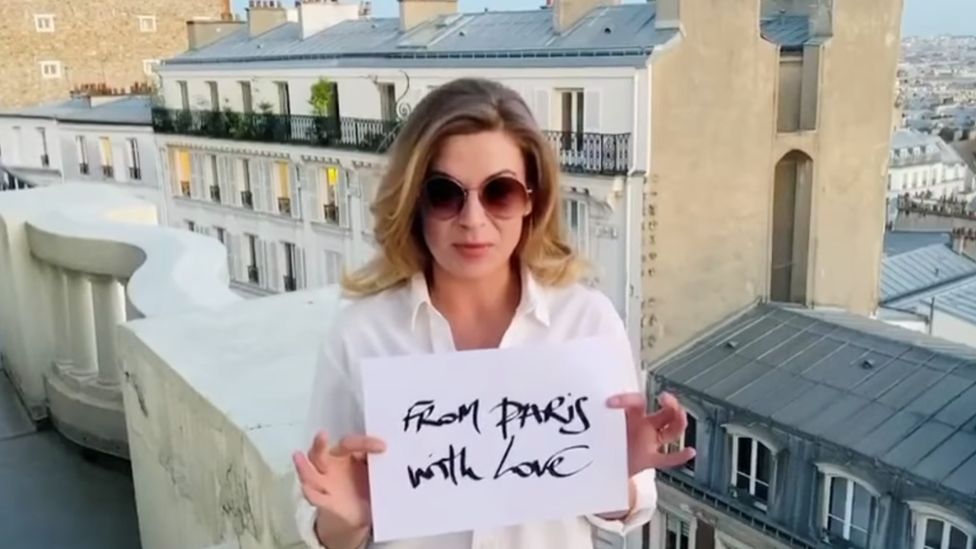Coronavirus: Travis McCready plays America's first gig in months
- Published
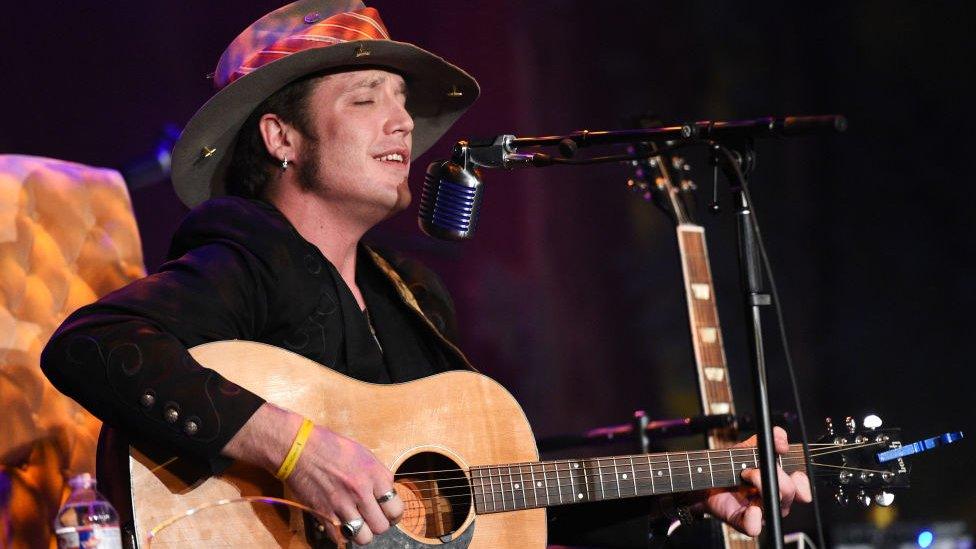
The concert had been the subject of a row between promoters and state officials
Country musician Travis McCready played to an audience wearing face masks in what's been described as the first US concert since the Covid-19 lockdown.
The gig, in Arkansas, offered a glimpse of how live music could resume in the UK, with compulsory temperature tests and social distancing for all present.
Concert-goers were required to buy seats in clusters, branded "fan pods", and large areas were roped off.
"It's just nice to be doing something that's normal," said one attendee, external.
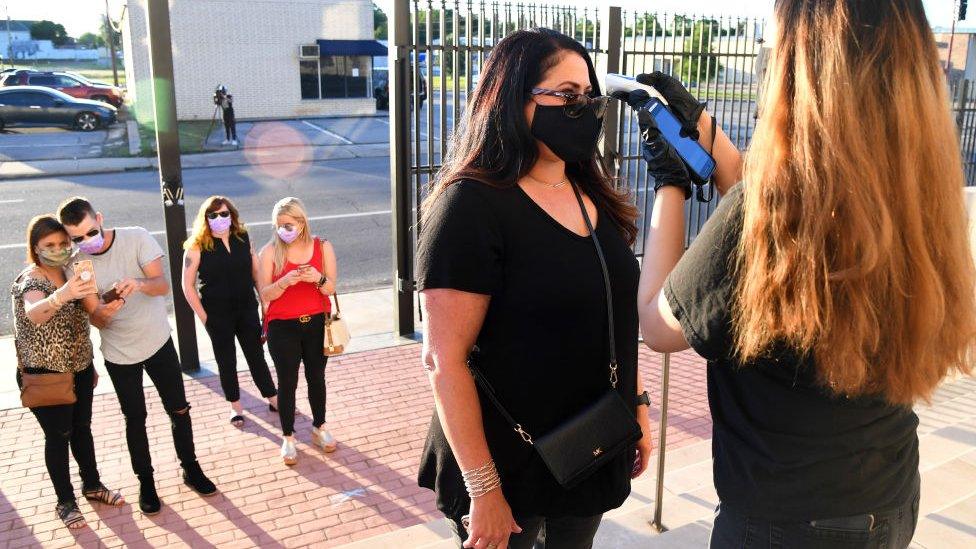
Fans had their temperature checked as they entered the venue
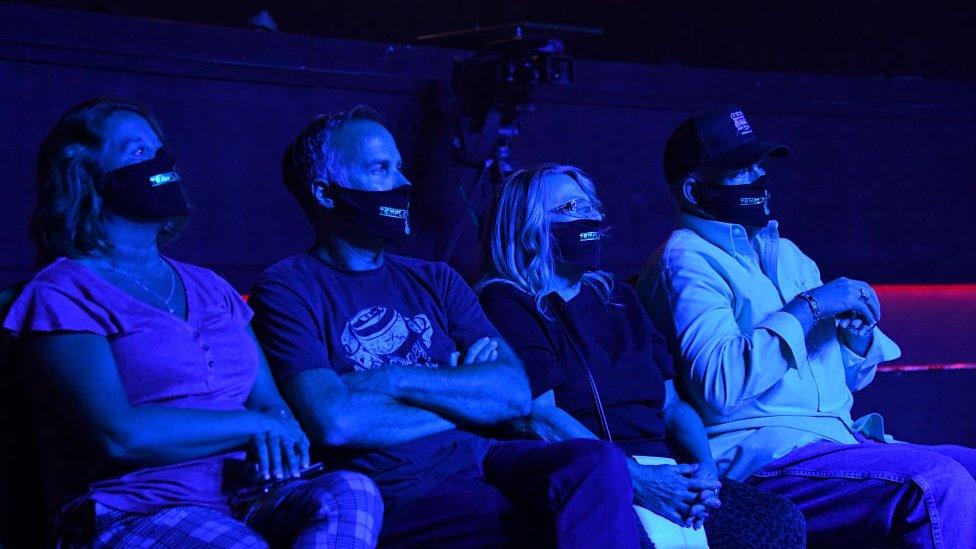
The audience sat in socially-distanced clusters throughout the show.
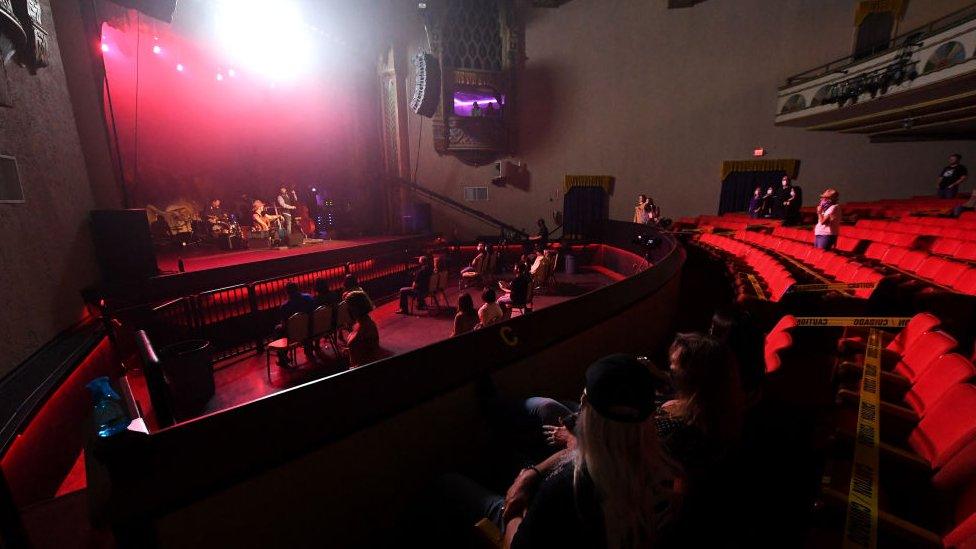
Large areas of the auditorium were left empty
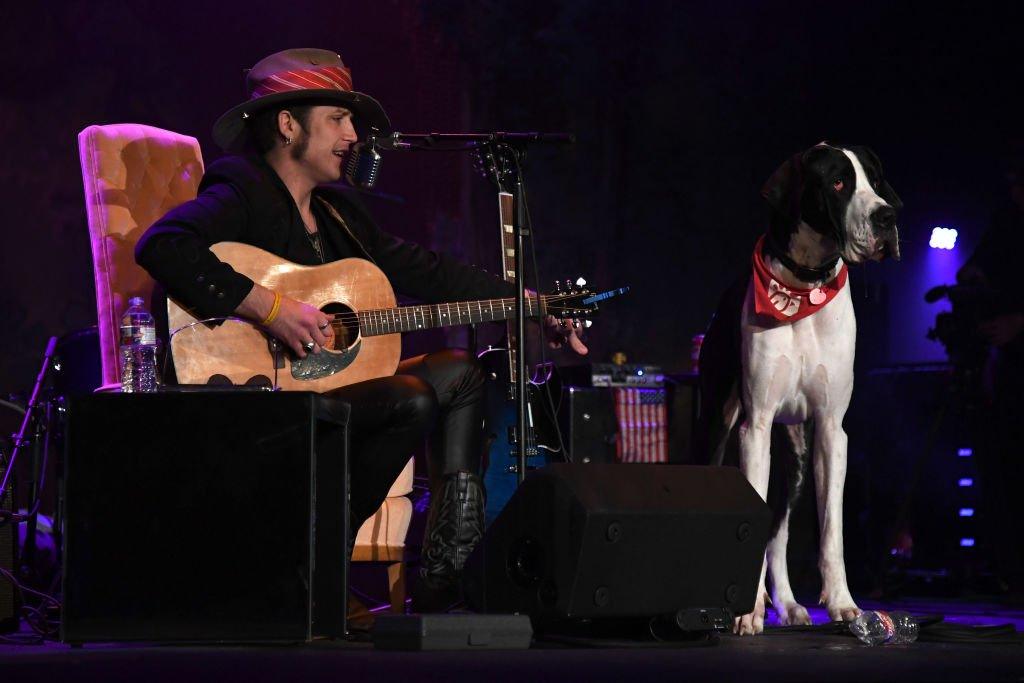
The restrictions didn't stop McCready from being joined onstage by his dog, Jack
Allow X content?
This article contains content provided by X. We ask for your permission before anything is loaded, as they may be using cookies and other technologies. You may want to read X’s cookie policy, external and privacy policy, external before accepting. To view this content choose ‘accept and continue’.

McCready's concert was originally scheduled for Friday, 15 May, in Fort Smith, Arkansas, but Governor Asa Hutchinson said it failed to meet the state's public health standards.
The venue - a former Masonic temple called TempleLive - was threatened with a cease-and-desist order and had its alcohol licence revoked.
But after making adjustments to their concert plan, the venue received permission to stage the concert on Monday night.
Under the state-approved plan, all employees and audience members over the age of 10 were required to wear face coverings, and performers were instructed to maintain a minimum distance of 12 feet from the audience.
The state also allowed TempleLive to have 239 people seated in the 1,100-seat venue.
'Fight for your right'
After receiving the go-ahead, representatives from the venue maintained they had delayed the concert against their will.
"This is about rock and roll, and having a good time, and live music, and being out with your peers, and doing what you do as an American: You get out, you do things," Mike Brown told reporters at Arkansas TV station KFSM-TV, external.
Speaking to the New York Times, Mr Brown also argued that concert venues were being held to stricter standards than other public gatherings.
"If you can go to a church and it's a public assembly, there is no difference," said Mike Brown, a representative for Temple Live. "How is it OK for one group to have a public meeting, and it's not OK for a music venue to have the same opportunity?"
State officials argued that a concert was more dangerous than a religious gathering because it was more likely to attract visitors from out-of-town.
Allow X content?
This article contains content provided by X. We ask for your permission before anything is loaded, as they may be using cookies and other technologies. You may want to read X’s cookie policy, external and privacy policy, external before accepting. To view this content choose ‘accept and continue’.

When the show finally went ahead on Monday night, Mr Brown greeted the audience by playing the Beastie Boys' Fight For Your Right (To Party) before introducing support act Lauren Brown.
McCready took to the stage later, without referencing the strange circumstances. Nonetheless, fans seemed to appreciate the show.
"We're happy to be here," said LaLisa Smiddy, who drove four hours to attend the concert.
"I'm one of the more paranoid ones out there, and when I saw everything this venue has done, I was ready to come," she told the New York Times, external. "I think they've done an outstanding job."

EUROPE'S EASING: How countries are lifting lockdown
THE R NUMBER: What it means and why it matters
GLOBAL SPREAD: Tracking the pandemic
RECOVERY: How long does it take to get better?
A SIMPLE GUIDE: What are the symptoms?

However, McCready's show is unlikely to kickstart a return to live music just yet, with most experts predicting that large-scale shows will not resume before the end of 2020.
In the UK, many small venues are at risk of closure due to the sudden lack of income, prompting the Music Venue Trust to launch a "Save Our Venues" fundraising campaign last month.
The initiative has raised £1.5m so far, meaning 140 venues have been temporarily saved from the threat of imminent closure.
"This is a good start," said CEO Mark Davyd, "but we cannot relax as we still have a mountain to climb to secure the long-term future of this sector.
"We still desperately need more music industry companies to step up and help with donations alongside real action from government specifically around rent relief, more financial help and clearer guidance."

Follow us on Facebook, external, or on Twitter @BBCNewsEnts, external. If you have a story suggestion email entertainment.news@bbc.co.uk, external.
- Published8 May 2020
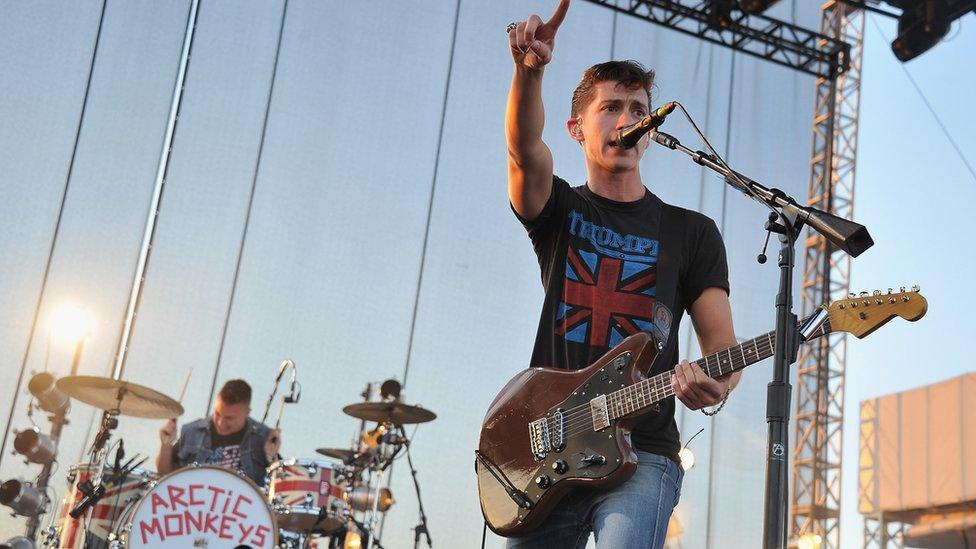
- Published7 May 2020
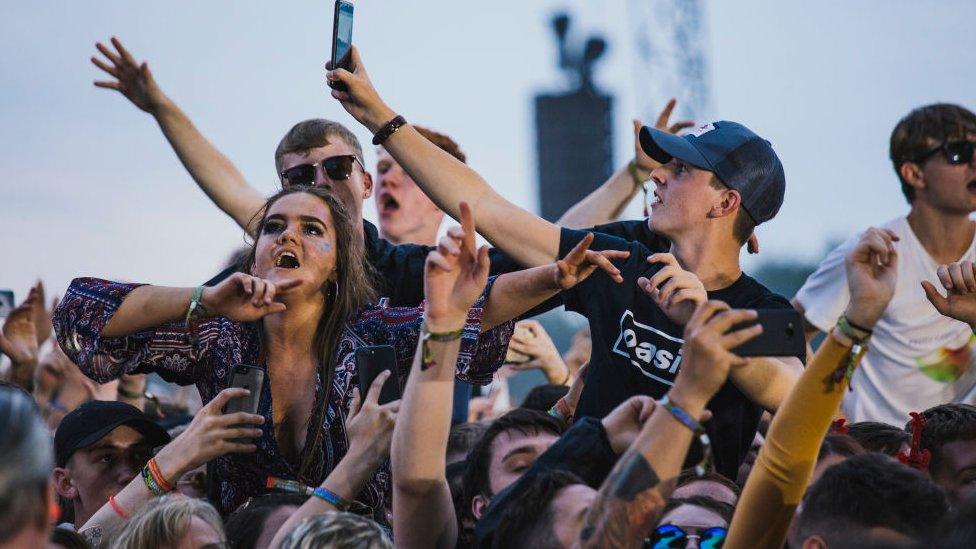
- Published14 May 2020
